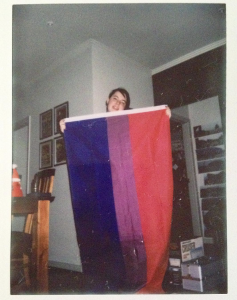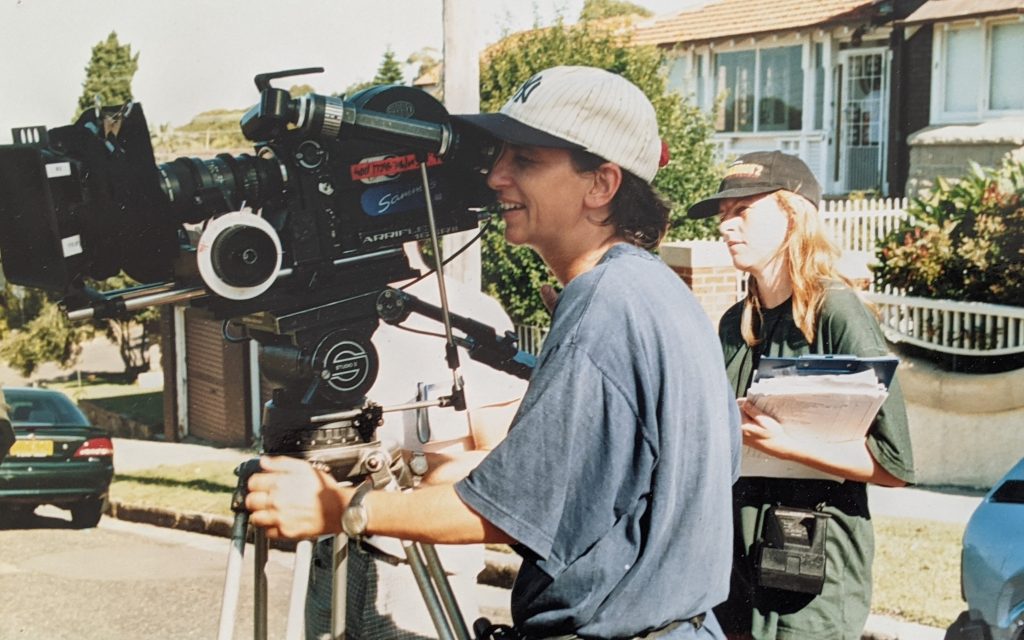Violence against women: Canberra says no
By AMY BIRCHALL
A meditation group seeking tranquillity under the oak trees in Glebe Park had little hope of finding inner peace yesterday afternoon (29 October 2010).
Normally, warbling magpies and the buzz of peak hour traffic make holding a tree pose difficult enough. But yesterday, even those sounds were drowned out by Amazon-like warrior cries; the constant banging of drums the size of schoolchildren and bass-heavy music played through crackly speakers.
At the far end of the park, young women in matching black t-shirts herded 300 people with banners and placards into formation. Puffed, sweaty latecomers manoeuvred through the meditation group to join them.
A petite blonde with no makeup and an orange Rastafarian hat shouted directions to the crowd.
“Men, you’ll have to assemble here, that’s right,” she said. “If you’re marching through the Canberra Centre, line up here!”
It sounded like a call to battle, and in some ways, it was. Canberra’s Reclaim the Night March, which is an annual protest against sexual violence towards women, was about to begin.
The crowd waited in nervous anticipation behind banners that read, “There’s nothing sexier than consent”, “A woman’s place is in the struggle: Canberra Resistance” and “Reclaim this night EVERY night”. The woman in the orange hat signalled to the front of the crowd and the protest snaked its way noisily out of Glebe Park towards Garema Place.
Women with walking sticks marched beside mums with their teenage daughters. Uni students wove their rusty bikes through the crowd, past public servants, women with dreadlocks and tattooed earlobes, and the occasional bloke whose disgruntled expression suggested that he was only marching because his wife had dragged him along.
Verity, 17, waved a “Women against rape” banner at the front of the march. She had a mischievous face and wore a red bandana tied around her head. She said she had been to too many Reclaim the Night marches to count and believed “that every woman should be safe on the streets, no matter what”.
Verity was not afraid to stick to this conviction either. When a car full of young males started to hassle the protesters, Verity swiftly pointed out that people like them are the reason women like her are marching, and suggested that they leave the march alone. Incredibly, they did.
Some passersby cheered when they saw the protest, or gave approving nods. A group of high school girls dropped their shopping bags and stared, mouths gaping. Others cast their eyes down as though even looking at a moderately vocal feminist congregation could shrivel their reproductive organs.
Chants of “Yes means yes, no means no! However we dress, wherever we go!” announced the procession’s arrival in Garema Place, where markets, souvenir stalls, a vegan-friendly sausage sizzle and belly dancers were waiting.
Three girls in brightly-coloured satin party dresses with heavy doll-like makeup walked the perimeter of the crowd at a snail’s pace. Cardboard signs hung around their necks: “I am not a toy”, “I think, I feel, I love” and “Listen to our story”. They stared at their feet as they walked, seemingly oblivious to the attention they were receiving from the crowd.
The dolls were led by Braiden, 17. His head was shaved and he wore eyeliner that swirled outwards from underneath his lower eyelashes, a chequered sports jacket and a cardboard sign with the group’s name, “A Krewd Ensemble”.
“Tonight’s been fantastic… There’s no better way to connect with women [than by participating in the march]”, he said.
He did not respond to questions about the costumes or why they chose to portray women as toys. He suggested speaking with the doll in the red dress and black Doc Martens, but warned that because she is “in character”, I was unlikely to find the answers that I needed.
The red doll’s dyed-black hair was teased and messily pulled into loose pigtails around her ears. She was in her early twenties and refused to share her name.
She said that she had once been in an emotionally-abusive relationship, which she only found the strength to leave after giving birth to her son. She represented thousands of women who are victims of abuse, and gave hope to those that are not strong enough to stand up for themselves, she said.
As the sun set, the crowd dissipated. The banners were folded up and the drums packed away. The chants were replaced with a sense of tranquil calm. I gazed through the gaps in the rustling trees at the still-pink sky.
It would have been a perfect night for meditating.




Be the first to comment!